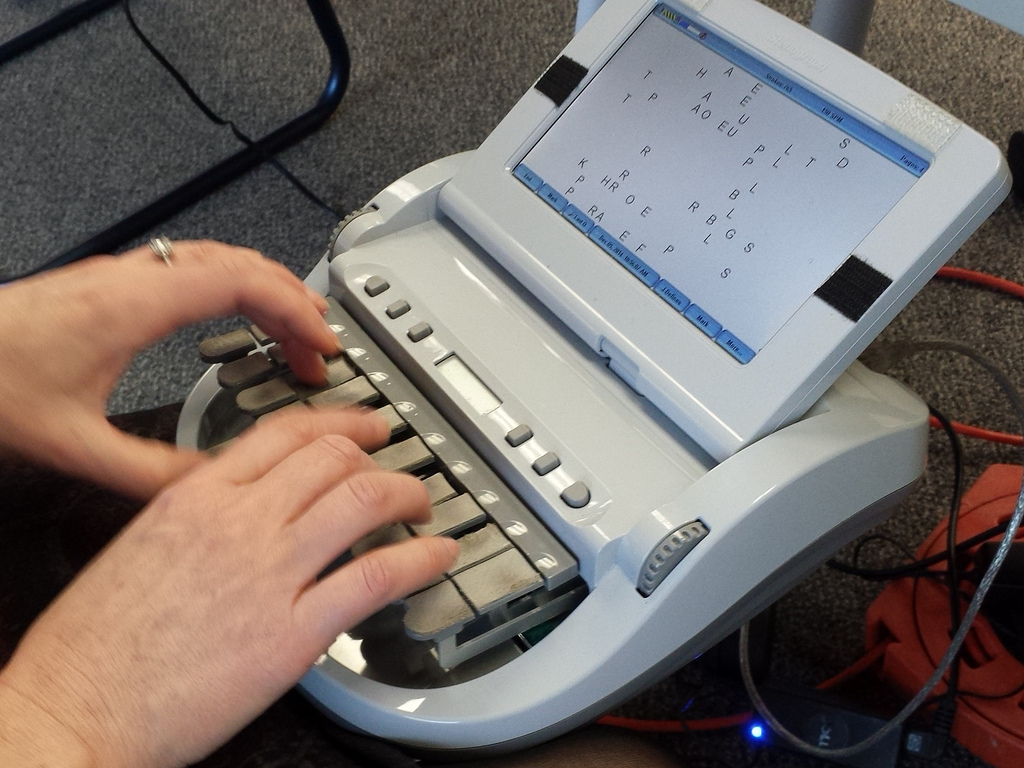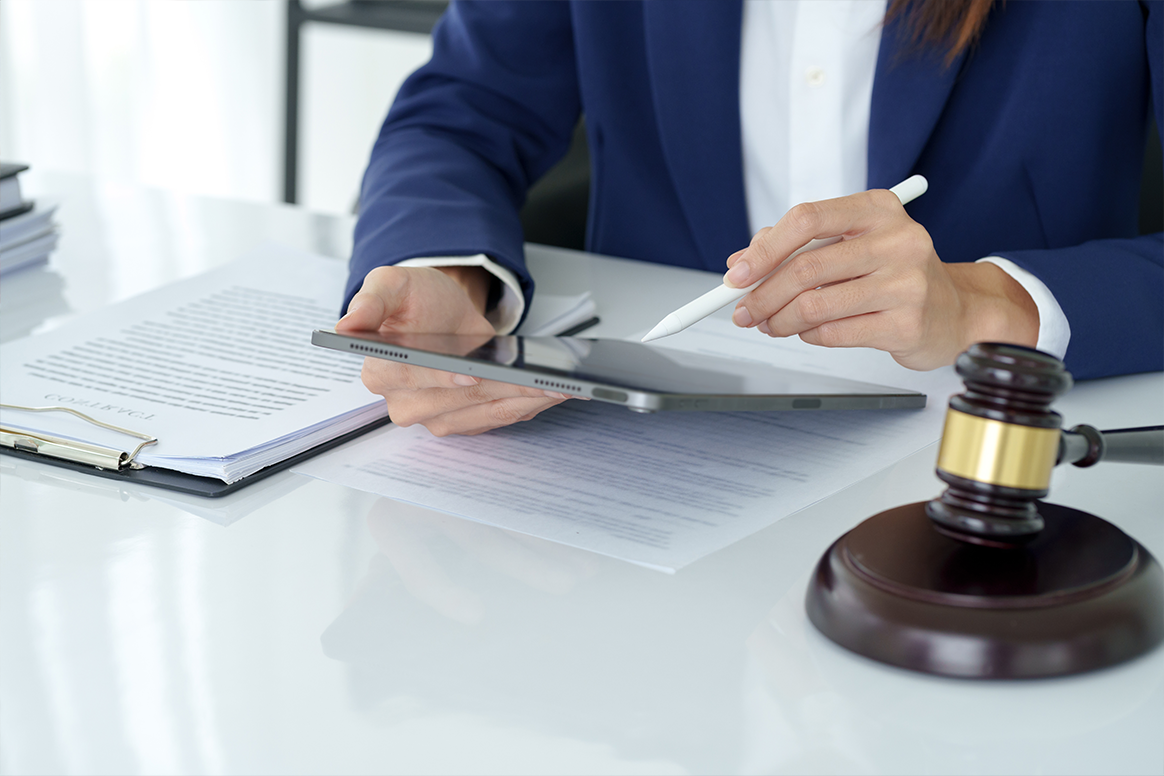Understanding the Important Role of Court Coverage in Legal Proceedings
Court reporting is commonly forgotten, yet it's essential in legal proceedings. Allow's check out the essential features of court reporting and its significance in the lawful landscape.
The Background of Court Coverage
Court coverage has an abundant history that dates back to ancient human beings, where scribes utilized various methods to record talked words. The earliest kinds of shorthand arised in Greece around 400 BC, enabling theorists and politicians to tape-record speeches swiftly. As you relocate with history, you'll find that the Romans adopted comparable techniques, fine-tuning them to document lawful process. By the 16th century, contemporary shorthand systems began to materialize, enabling stenotype reporter to generate precise transcripts successfully.
In the 19th century, the creation of the typewriter reinvented the profession, making it simpler to create readable records. The intro of steno makers in the 20th century even more advanced court coverage, allowing real-time transcription throughout trials. Today, court press reporters play a considerable function in lawful procedures, guaranteeing that every word talked in the court is precisely documented. Recognizing this history highlights the relevance of court reporting in preserving a reasonable legal system.
The Abilities Required for Court Reporters
As a court press reporter, you require strong typing abilities to stay on par with the busy dialogue of legal procedures. Your capacity to pay attention attentively is simply as essential, ensuring every word is recorded accurately. Mastering these skills is crucial to providing exact and reputable records.
Skillful Typing Capabilities

Strong Listening Skills
Solid paying attention skills are important for court reporters, as they must accurately capture spoken words in real time. This ability helps you set apart in between speakers, recognize lawful jargon, and comply with complicated conversations. Inevitably, strong listening skills make you an indispensable property in lawful procedures, making sure clearness and accuracy in the court record.
The Innovation Behind Court Reporting
In the domain name of lawful procedures, technology plays a vital role in improving the precision and efficiency of court coverage. You're most likely aware of the traditional stenotype equipment, yet contemporary court reporters currently utilize advanced software program that integrates with these machines, permitting real-time transcription. This indicates you can have instant accessibility to the transcript as the process unravel.
Digital audio recording is one more technological improvement that's acquiring grip. It catches every talked word, ensuring nothing is missed out on. Some reporters utilize voice acknowledgment software application, which can help enhance the transcription process, though it still needs human oversight for accuracy.
Additionally, cloud-based storage enables easy gain access to and sharing of records, enhancing cooperation amongst legal groups. By leveraging these innovations, court press reporters can offer high-quality, prompt records that are vital for the legal procedure. Embracing this tech not just improves your understanding however additionally guarantees reliability in lawful documents.
The Court Reporting Refine

As legal procedures unfold, the court reporting process comes to be essential in capturing every detail precisely. You'll discover that a court press reporter plays an essential function by transcribing spoken words into created message in real-time. When you enter the courtroom, the reporter is currently prepared, equipped with specialized devices like stenographic equipments and audio recording tools.
Throughout the process, the press reporter pays attention attentively, typing out everything said, from witness testimonies to lawyers' arguments. You may notice them stopping briefly periodically to ensure clearness or to ask for a repeat if something wasn't clear. After the session, the press reporter assesses the records, making required edits for readability.
This entire process not just ensures a detailed document however likewise prepares you for future reference throughout allures or situation testimonials. In the hectic setting of a court, the court reporting process is vital for maintaining an accurate account of occasions.
The Value of Accuracy in Records
While a stenotype reporter's main task is to record spoken words, the precision of these transcripts is vital for the integrity of lawful proceedings. When you're associated with a situation, you rely on specific paperwork to understand the occasions and disagreements presented. Any type of errors in transcription can bring about misunderstandings, misinterpretations, or their website also wrongful judgments.
Precise records guarantee that every information is captured, giving a trustworthy document for judges, lawyers, and juries. This degree of information is necessary throughout charms or when referencing previous statements. If a records contains mistakes, it can threaten the entire lawful process, potentially influencing outcomes.
In addition, accurate transcripts promote the legal rights of all events involved, promoting justness and openness. Whether you're a lawyer preparing for test or a witness reflecting on your statement, you can rely on that the court press reporter's ability in precision plays a significant duty in your case's success.
The Role of Court Reporters in Different Legal Setups
Stenotype reporter play a necessary role in different legal settings, from tests to depositions and lawful hearings. You'll locate that their work assurances every talked word is properly recorded, Visit This Link which is crucial for the legal procedure. Comprehending exactly how their duties vary throughout these environments can highlight their influence on the justice system.
Court Reporters in Tests
In any kind of lawful test, you'll discover that court press reporters play a crucial duty in catching the procedures with accuracy and precision. They transcribe everything talked in the courtroom, making sure that every word is recorded for future recommendation. This record becomes vital for appeals, permitting greater courts to assess the test's stability. Court reporters should maintain focus and rate, frequently utilizing specialized devices to stay up to date with hectic dialogue. Their job sustains legal representatives, courts, and juries by providing a main account of testaments and disagreements. If discrepancies arise, the records functions as a trustworthy source to clarify what was said. Inevitably, court press reporters help copyright the justice system, making certain transparency and accountability throughout trials.
Depositions and Lawful Hearings
Beyond tests, stenotype reporter likewise play a vital duty in depositions and lawful hearings. During these check my reference proceedings, they record every talked word, making sure an exact document of statements and conversations. You'll find that this accuracy is very important, as depositions usually work as a structure for later arguments in court. Stenotype reporter supply real-time transcription services, enabling lawyers to comply with along and address any kind of issues quickly. Their work improves the efficiency of lawful hearings, making it much easier for all parties to refer back to the official document. In addition, the transcripts they generate can be significant for charms and other lawful procedures - court reporting. In other words, stenotype reporter are essential in preserving the honesty and clarity of the legal document in depositions and hearings.
Future Patterns in Court Reporting
As innovation continues to develop, the future of court reporting promises to be shaped by innovative tools and practices that enhance accuracy and efficiency. You'll likely see enhanced use of expert system and real-time transcription services, streamlining the reporting process. These advancements can assist you access records faster, which can be essential for your legal approaches.
Additionally, integrating video clip conferencing and remote coverage will come to be extra common, permitting you to get in touch with stenotype reporter from anywhere (court reporting). This versatility can make depositions and hearings more obtainable, saving both time and sources
You'll additionally see a focus on electronic recordkeeping, which streamlines the storage and retrieval of transcripts. With cloud-based services, you'll have the capability to share papers firmly and work together with your legal group in real-time.
Often Asked Questions
What Is the Ordinary Income of a Stenotype Reporter?
The ordinary income of a court reporter differs by area and experience, yet you can anticipate it to vary from around $50,000 to $80,000 yearly. Numerous factors influence this income, including expertise and demand.
How Do I Come To Be a Licensed Court Reporter?
To come to be a licensed stenotype reporter, you'll need to complete a court reporting program, pass a certification exam, and gain functional experience. It's essential to stay upgraded on industry requirements and proceeding education requirements.
What Kinds of Instances Do Court Reporters Cover?
Court press reporters cover various situations, including criminal trials, civil legal actions, depositions, and mediation hearings. You'll discover them documenting every little thing, making certain accurate records for courts, lawyers, and parties involved, catching every word talked in lawful settings.
Are Court Reporters Required to Have a Degree?
Yes, court press reporters typically need a degree or qualification in court reporting. Numerous programs use specialized training, guaranteeing you gain the skills needed for exact transcription and lawful documentation in different setups.
Can Court Reporters Job Remotely?
